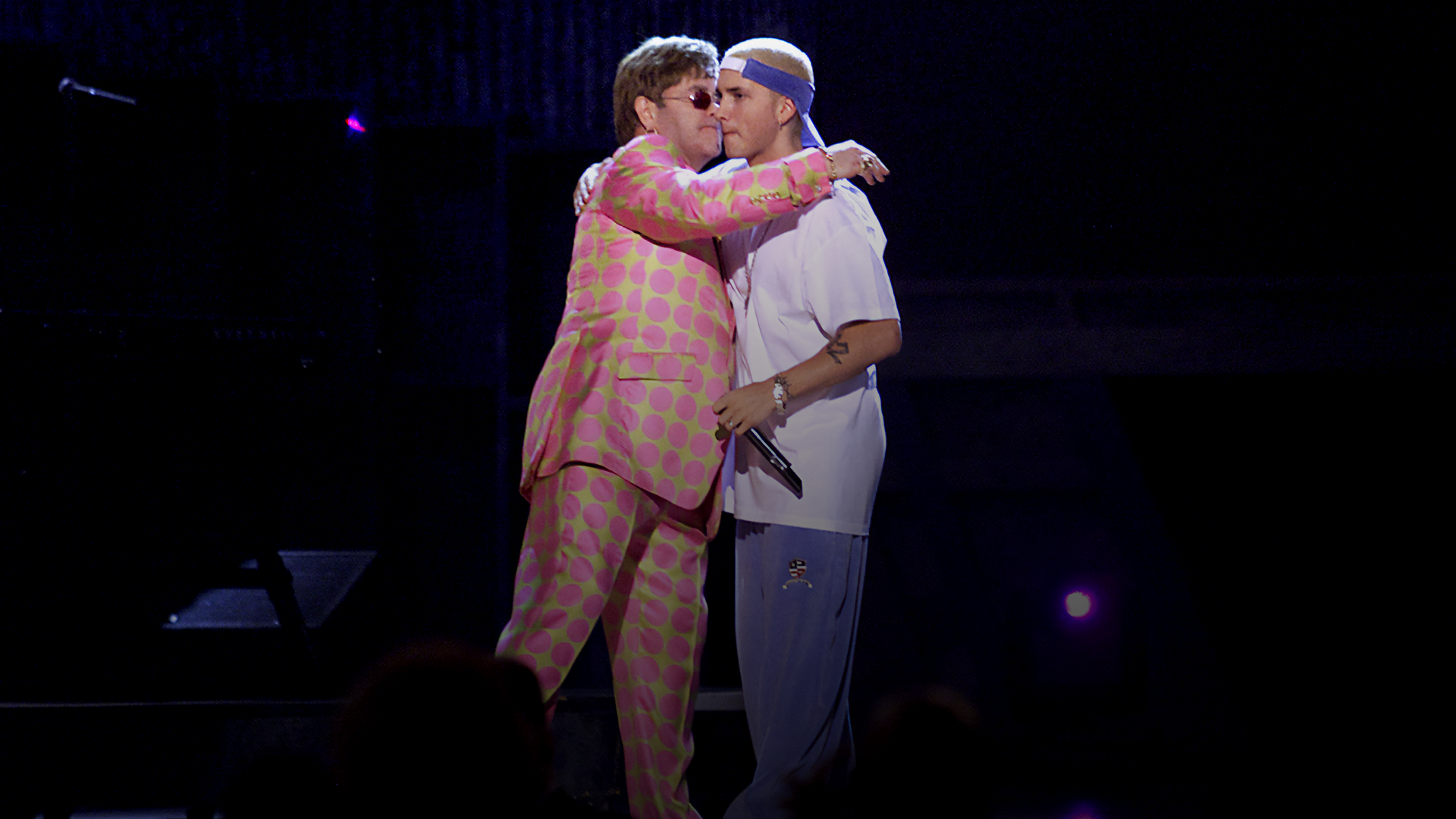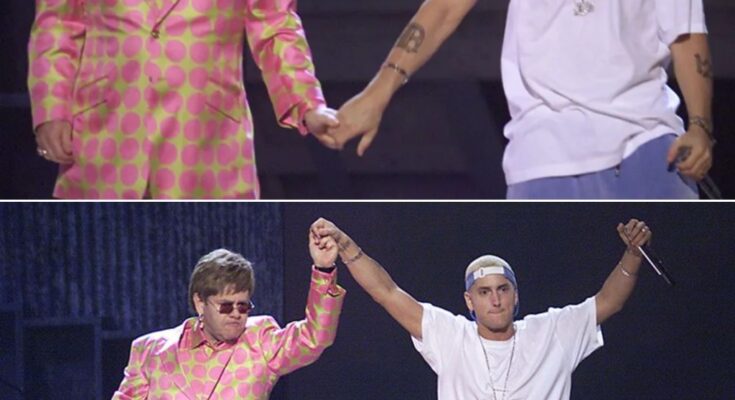
Eminem’s early career was marked by controversy, including accusations of homophobia due to his lyrics. However, his collaboration with Elton John, one of the most openly gay and beloved figures in music, was a clear signal of his personal growth and the deep respect he had for Elton. The performance was seen as a moment of reconciliation and understanding, as both artists were able to show that their connection went beyond labels and public perception.

Elton John, who had been an advocate for LGBTQ rights and had faced his own battles with public scrutiny, has spoken about how Eminem reached out to him privately before the performance, apologizing for any offense caused by his lyrics. Elton, known for his warmth and openness, accepted the apology and agreed to perform with Eminem, helping to bridge the gap between fans and critics alike.
Their “Stan” duet at the Grammys took the audience by surprise—two musicians, from different backgrounds, uniting to deliver a performance that was raw, emotional, and transcendent. The powerful synergy between them was undeniable. Elton’s soulful piano playing and harmonizing with Eminem’s intense rapping created an unforgettable atmosphere. The performance wasn’t just about the song itself, but about showing how two individuals could collaborate and overcome differences to create something extraordinary.

This moment proved that Eminem wasn’t defined by the controversies of his past but rather by his evolution as an artist and human being. It also demonstrated that Elton John, as a champion of love and acceptance, was willing to move past initial judgments to support an artist who was clearly working on his own growth. Together, they not only performed one of the most iconic songs in hip-hop but also used the stage to challenge preconceived notions about both artists.
It was a landmark event in their careers, and it cemented both Eminem and Elton John as figures who were not only legends in their own right but also symbols of the power of music to bring people together despite their differences. That moment in 2001 was more than just a performance—it was a powerful example of personal evolution, mutual respect, and the way music can unite even the most unlikely of individuals.



